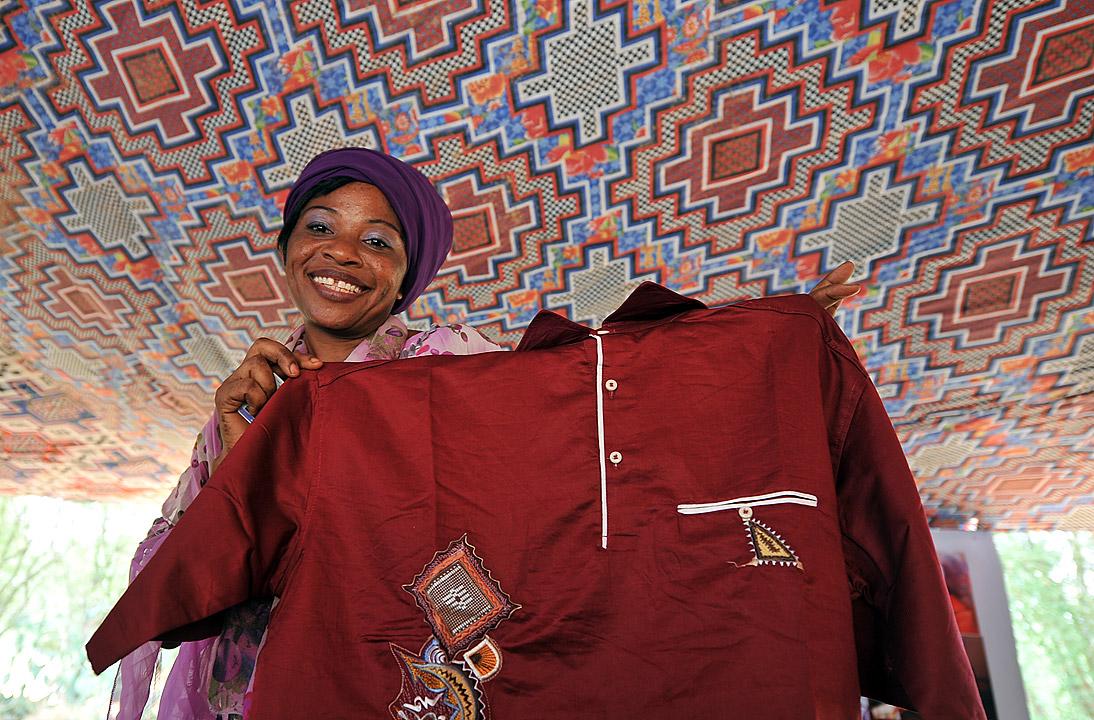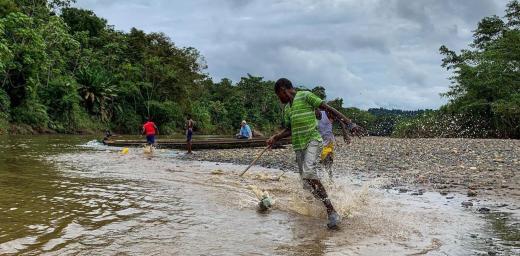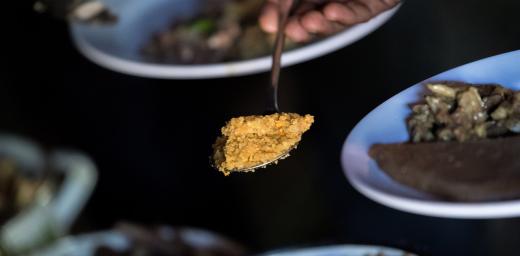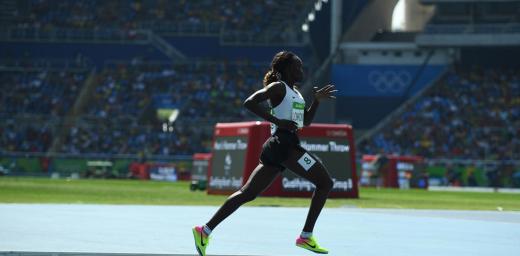Mauritania: stability and income after fleeing war

Armed with tailoring skills taught by the LWF, Congolese refugee Bolozi Nzenze Budiaki has the chance to support her family in new home, Mauritania. Photo: LWF/C. Kästner
“I want the best life for my children”
"We were just looking for peace,” says Bolozi Nzenze Budiaki, as if apologizing for the fact that she is now sitting in a tent and relyies on development aid in a country which is not her home.
The 32-year-old woman has twice had to flee for the sake of her family, and is now enrolled in the LWF Mauritania program for community development. Together with other women, she produces shirts that she sells for a living. The mother of three sits on a mat in the Mauritanian capital Nouakchott while she tells her story.
Born in the Democratic Republic of the Congo, she fled in 2003. “I was the last in my family to leave,” she recalls. Unlike many other DRC refugees, however, she did not stay in neighboring countries like Uganda, but went to Mali instead. “I knew that if I stayed close to the DRC, it would be easier for the rebels to come and kill us ,” she explains. Her family is dispersed all over the continent.
Refuge without a livelihood
Budiaki herself settled in Mali, found a husband, and had three daughters. But even before civil war erupted in Mali, she knew her children would be at risk of female genital mutilation. “My husband wanted to cut the girls,” she says. “That’s why I left him and came to Mauritania. When we came here, thank God we had peace.”
Peace however did not solve her basic problem of subsistence. In the intervening period she re-married. “As a refugee, it was difficult to get a job in Mauritania,” she says. “I worked as a waitress and as a maid, while my husband [ctv1] [sco2] stayed with the children. As a woman, I could more easily find employment in the service sector than him.” Budiaki cooked small meals and sold salted fish.
People like Budiaki are the target group for the LWF Mauritania Integrated Community Development Program, which has three key objectives: disaster risk reduction and emergency preparedness, sustainable livelihoods, and community-led action for justice and peace. It targets vulnerable people from the districts of Nouakchott, Brakna and Hodh El Charghui. Unlike Nouakchott, where a quarter of the population lives in poverty, the latter two are small communities in the Sahel desert with high rates of poverty and malnourishment. In Brakna, more than 300km from the capital, two thirds of the population lives in poverty, while in the even more remote Hodh El Charghui, every second person lives below the poverty line.
LWF provides communities with material and financial aid, as well as training and access to micro-finance institutions, which are often closed to foreigners.
“We did not only observe changes in people’s everyday lives but also noticed their participation in community matters increased,” LWF Mauritania country representative Kasongo Mutshaila said.
“They help families affected by flooding, organize sanitation campaigns whereby people clean public places, such as markets and water points, and they meet to discuss critical matters affecting their communities.”
Reliable income a better alternative to day wages
The project focuses on empowering people who face special challenges: single mothers and female-headed households, the elderly and people living with HIV/AIDS or with disabilities.
“Many women turn to prostitution as the only way of making an income,” Budiaki’s friend Lou Diena Victorine Irie says. She fled the conflict in the Ivory Coast in 2010. Her family is either “divided or dead”, as she succinctly puts it.
Like Budiaki, Irie faces the challenge of being the breadwinner for her children - three boys and one girl - the youngest a two-year-old toddler, the eldest a 17-year-old teenager. “I want more for my children,” Irie says. “I want the best life for them.”
The program started this year and will run until 2020. It has changed Budiaki’s life. The two women have been trained and formed a cooperative. Together, they produce clothing and food and sell their goods, which in turn provide a more steady income than the day-to-day wages the women used to earn before. “This is better, but still not enough to save money for the future.”
Budiaki’s greatest concerns now are her children. “I hope their lives won’t be as difficult as mine,” she says. “I want them to live somewhere where they will have a scholarship, an education and medical care, in a country that respects their rights as children.”





